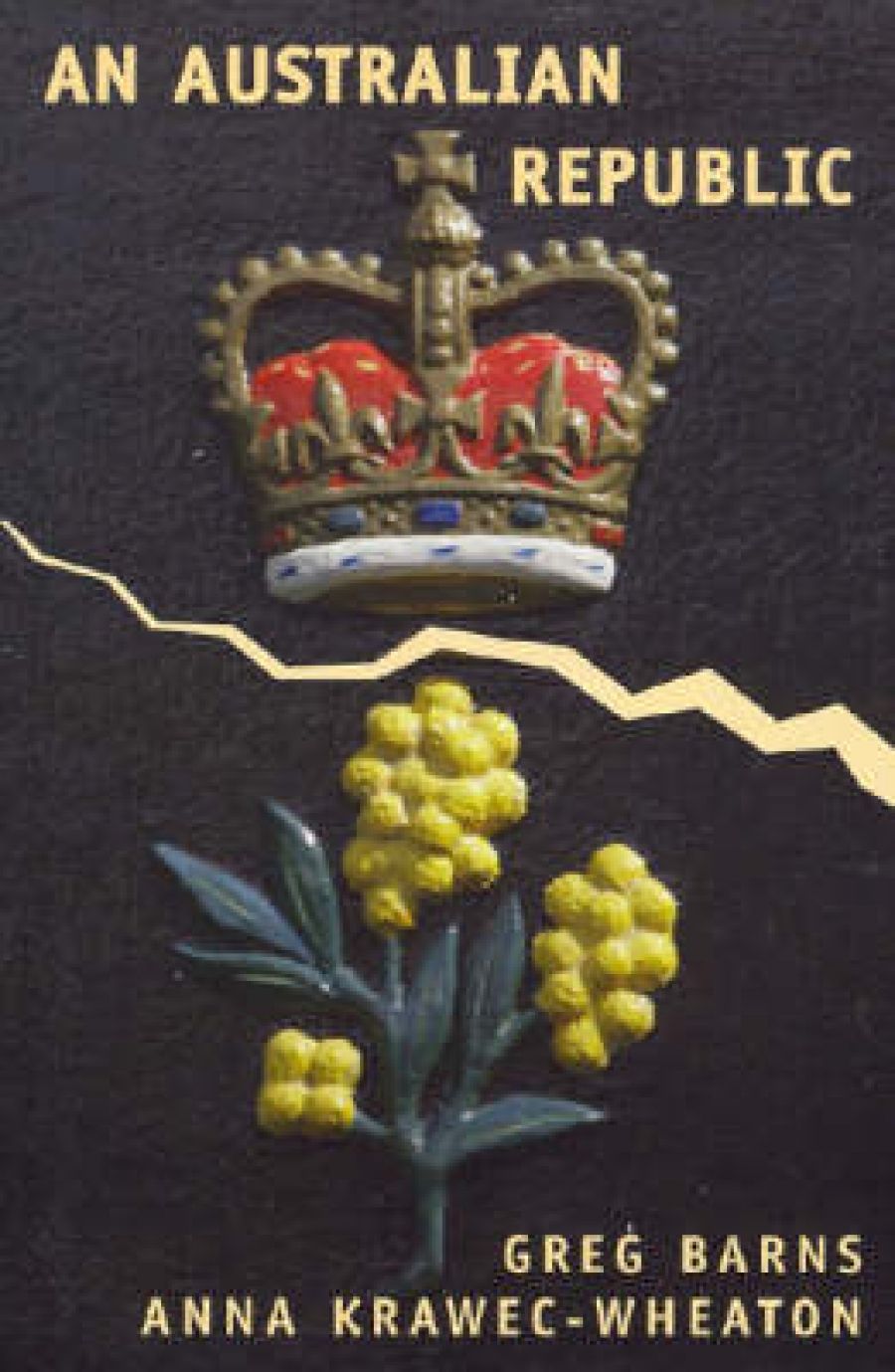
- Free Article: No
- Contents Category: Politics
- Review Article: Yes
- Online Only: No
- Custom Highlight Text:
An Australian Republic presents itself as the book to reopen the republic debate – a defibrillator for our body politic. It turns out, however, to be another example of the lazy argument that marks much of Australia’s progressive discourse. It answers to nothing but its own echo chamber. Meaningless sentences such as ‘Australia is a nation of multiple and changing identities; a moving kaleidoscope of diverse and colourful images’ abound; baseless statements – such as ‘for many of those immigrants … a constitutional system that identified both structurally and symbolically with Australia’s British origins was incompatible, unfamiliar, and indeed alien’ – are supported with the barest of evidence (the quote’s footnote refers readers to an article in Feminist Review entitled ‘The Republic is a Feminist Issue’). Inconsistencies stick out like bookmarks: John Howard’s narrowly economic definition of Australianness ‘promotes a distinctive and exclusively white, male-orientated, Brito-centric identity’. True, perhaps, but this could equally be said about other conceptions of Australian identity presented, without censure, on the preceding page.
- Book 1 Title: An Australian Republic
- Book 1 Biblio: Scribe, $22 pb, 135 pp
Most frustrating of all is the sheer blandness of the book: every remark has been carefully road-tested for middlebrow political acceptability: there isn’t really much to argue with in this book, and that’s the problem. It is both too small and too big: too small in that it refuses to address the fact that the formation of a republic might hinder rather than help a serious reckoning with our past, or that the 1999 referendum may have failed in part because certain republicans delighted in portraying those who were against them as antediluvian royalists; too big in that the final lunge towards deliberative democracy, however noble a gesture, raises far larger questions than simply who should be our head of state. Those questions are worthy, but they will need to be addressed by a more sophisticated book than this one.


Comments powered by CComment